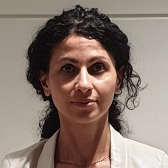Multidisciplinary Approach Toward All Phases of WEEE Life Cycle for Economic and Sustainable Electronic-Wastes Recovery
A special issue of Energies (ISSN 1996-1073). This special issue belongs to the section "A: Sustainable Energy".
Deadline for manuscript submissions: closed (30 September 2020)
Special Issue Editors
Interests: filters; integrated circuits; MMIC; sensors; sensors interfaces
Special Issues, Collections and Topics in MDPI journals
Interests: chemical engineering; waste management; waste treatment; hydrometallurgy; wastewater treatment; biosorption
Special Issues, Collections and Topics in MDPI journals
Interests: renewable energy; sustainability; green management; green investment; environmetal protection
Special Issues, Collections and Topics in MDPI journals
Interests: sustainable rehabilitation; historical buildings; renewable energy; green infrastructures; construction site management; recycled and smart materials
Special Issues, Collections and Topics in MDPI journals
Special Issue Information
Dear Colleagues,
When items of electric and electronic equipment (EEE) and their parts are discarded by their owners since there is no intention of reuse, they are referred to as waste electrical and electronic equipment (WEEE), also referred to as UEEE (used electrical and electronic equipment), e-waste, or e-scrap.
Due to constant technology development, electronic devices and appliances represent some of our most wasted household and commercial items. Connected to this development, there is the necessity of handling and managing the waste electrical and electronic equipment. The improper handling and management of WEEE can determine not only relevant environmental damage, but also threats on human health.
Additionally, this kind of waste contains noteworthy quantities of valuable materials, such as metals and plastics, as well as precious and rare metals. It is therefore necessary, not only in the recovery phase, to adopt approaches that are environmentally friendly, but also to design even more efficient WEEE recovery systems.
Correct WEEE management has been recognized as one of the major challenges of the 21st century, and this problem is faced not only by the scientific community and activist organizations, but also by international and national authorities.
For all these reasons, it is necessary to investigate and optimize all the phases of the WEEE life cycle, from collection to primary and secondary transportation, dismantling, recycling, and material recovery.
Many academic researchers are focusing their effort on these themes, and several interesting questions still remain to be investigated: the environmental and human impacts of different types of e-waste, the recycling process of e-waste, the effects of harmful substances that can derive from the recycling process, the effectiveness of recycling process, the cost of the metal recycling process, and the planning of political actions to effectively control the amount of waste in the environment.
Additionally, among these sectors, the impact of the so-called “smart buildings” on the production of e-waste is an aspect that has yet to be investigated. Following the Directive (EU) 2018/844 of the European Parliament and of the Council, these intelligent buildings involve features such as smart meters, self-regulating devices for the regulation of indoor air temperature, built-in home appliances, building automation and control systems, energy storage, and recharging points for electric vehicles. These features are not present in traditional buildings, and it is clear that they will have an impact at the end of life.
Topics of interest for submission include, but are not limited to:
- Characteristics of valuable materials of WEEE;
- Recovery and reuse of WEEE;
- Recent developments in recycling technologies;
- Technologies and practices for critical metals recovery;
- Hazardous and recyclable materials contained in waste PCBs;
- Green design and remanufacture;
- Life cycle assessment
- The policy and standards of WEEE;
- Collection and management strategies for WEEE;
- Environmental impact;
- Waste to resource: recovery and reuse of WEEE;
- Smart electronic design and recycling technologies;
- Critical metals in WEEE;
- Hazardous effects on the environment;
- Smart buildings and WEEE;
- E-waste in the construction and demolition (C&D) waste;
- Recycled e-waste for new construction materials.
Prof. Dr. Vincenzo Stornelli
Prof. Ida De Michelis
Prof. Francesco Veglio
Prof. Federica Cucchiella
Prof. Marianna Rotilio
Guest Editors
Manuscript Submission Information
Manuscripts should be submitted online at www.mdpi.com by registering and logging in to this website. Once you are registered, click here to go to the submission form. Manuscripts can be submitted until the deadline. All submissions that pass pre-check are peer-reviewed. Accepted papers will be published continuously in the journal (as soon as accepted) and will be listed together on the special issue website. Research articles, review articles as well as short communications are invited. For planned papers, a title and short abstract (about 100 words) can be sent to the Editorial Office for announcement on this website.
Submitted manuscripts should not have been published previously, nor be under consideration for publication elsewhere (except conference proceedings papers). All manuscripts are thoroughly refereed through a single-blind peer-review process. A guide for authors and other relevant information for submission of manuscripts is available on the Instructions for Authors page. Energies is an international peer-reviewed open access semimonthly journal published by MDPI.
Please visit the Instructions for Authors page before submitting a manuscript. The Article Processing Charge (APC) for publication in this open access journal is 2600 CHF (Swiss Francs). Submitted papers should be well formatted and use good English. Authors may use MDPI's English editing service prior to publication or during author revisions.
Keywords
- WEEE;
- eWaste;
- disposal;
- recovery;
- sustainability;
- waste management;
- smart buildings.
Benefits of Publishing in a Special Issue
- Ease of navigation: Grouping papers by topic helps scholars navigate broad scope journals more efficiently.
- Greater discoverability: Special Issues support the reach and impact of scientific research. Articles in Special Issues are more discoverable and cited more frequently.
- Expansion of research network: Special Issues facilitate connections among authors, fostering scientific collaborations.
- External promotion: Articles in Special Issues are often promoted through the journal's social media, increasing their visibility.
- e-Book format: Special Issues with more than 10 articles can be published as dedicated e-books, ensuring wide and rapid dissemination.
Further information on MDPI's Special Issue polices can be found here.








